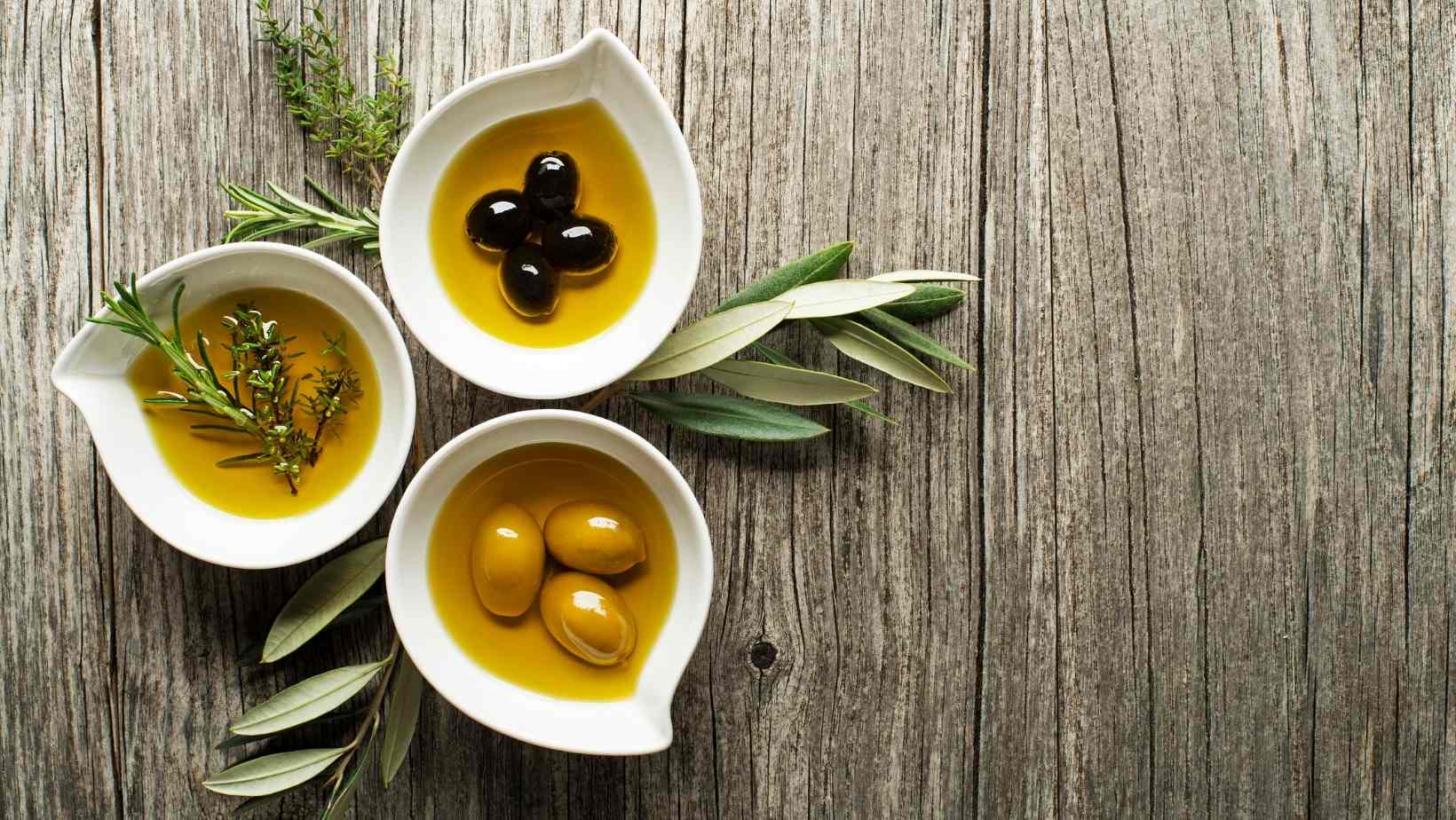It's always a pleasant surprise when something so tasty turns out to be so healthy—and if you haven't discovered that about olive oil yet, you're about to!
Olive oil has been a mainstay of Mediterranean civilizations for thousands of years, going back to the Ancient Greeks and Romans, and it is still the region's most preferred cooking oil. Indeed, nutritionists think that the Mediterranean basin has some of the world's longest-living people because their usual daily diet is high in healthful fats like olive oil, almonds, and fatty fish.
Olive oil, unlike other cooking oils, has the unique ability to deliver a one-two punch to chronic and degenerative illnesses, thanks to the strong polyphenol chemicals present in extra virgin olive oil and the high proportion of monounsaturated fatty acids (MUFAs) found in all grades. As a consequence, olive oil intake has been linked to a variety of benefits, including lower cholesterol, a better mood, and stronger bones.

Here are a few of the most interesting health benefits of olive oil supported by research:
Jump to:
- 1. It is high in polyphenols
- 2. It has a great cardiovascular health benefit
- 3. It has the potential to lower the risk of some malignancies
- 4. It promotes good memory and brain function
- 5. It promotes a positive mental approach and mood
- 6. It helps to reduce pain and inflammation
- 7. It has the potential to improve bone health and strength
- 8. It promotes a balanced gut microbiota
- 9. It aids in the maintenance of a healthy immune system
- 10. It regulates blood sugar levels and may aid in the prevention of diabetes
1. It is high in polyphenols
Polyphenols, natural bioactive chemicals with antioxidant capabilities found in plant foods such as fruits, vegetables, and olives, are plentiful in extra virgin olive oil. Polyphenols are beneficial to one's health in part because they fight oxidative stress, a form of stress that destroys lipids, proteins, and DNA, contributing to heart disease, cancer, diabetes, and dementia. hydroxytyrosol and oleocanthal are two polyphenols found in olive oil that have antioxidant, anti-inflammatory, cancer-fighting, neuroprotective, and antibacterial activities.
2. It has a great cardiovascular health benefit
For (many) reasons, olive oil is considered heart-healthy. People who ate a Mediterranean-style diet with 4+ tablespoons of extra virgin olive oil per day had a lower risk of developing cardiovascular disease, and their combined risk for heart attack, stroke, and death from heart disease was around 30% lower than people who ate a low-fat diet, according to the widely cited PREDIMED study. EVOO has also been related to lower blood pressure and lower cholesterol levels. Because of their potential to alleviate inflammation and oxidative stress, as well as affect cholesterol levels in the bloodstream, oleic acid (the most prevalent MUFA in all olive oil grades) and different polyphenols are believed to be to blame.
To receive the advantages, you don't need to ingest 4+ tablespoons of olive oil every day. In fact, the US Food and Drug Administration (FDA) says there's reliable evidence that eating 12 tablespoons of oleic acid-rich oils, such as olive oil, will lower your risk of coronary heart disease if you substitute saturated-fat-rich fats and don't raise your daily calorie intake.
3. It has the potential to lower the risk of some malignancies
While no cuisine can guarantee cancer protection, olive oil intake may be one reason why cancer rates in Mediterranean nations are lower. According to findings from a 2020 study, extra virgin olive oil causes changes in gut flora that are linked to colorectal cancer prevention, and earlier research has indicated that women who consume the most olive oil had a decreased risk of colon cancer and breast cancer. Several components of olive oil, including oleic acid, hydroxytyrosol, oleocanthal, phytosterols, and squalene, have been shown to have anti-cancer potential.

4. It promotes good memory and brain function
The course of neurodegenerative illnesses, such as Alzheimer's disease, is linked to oxidative stress. However, the polyphenols in extra virgin olive oil, notably oleocanthal, act as powerful antioxidants that may help counteract this impact. In a 2019 animal research, oleocanthal-rich olive oil was shown to help restore healthy blood-brain barrier function and decrease neuro-inflammation, perhaps slowing the course of Alzheimer's disease.
5. It promotes a positive mental approach and mood
Olive oil's brain-boosting compounds might also help you feel better. In fact, studies from 2010, 2017, and 2019 all back up a growing body of evidence that suggests Mediterranean-style diets might help alleviate depression! After a 12-week Mediterranean diet intervention that included olive oil, 30% of patients in one of the trials had remission from moderate to severe depression. According to further studies, the beneficial fats in olive oil benefit the central nervous system by assisting nerve activity and rising levels of the mood-enhancing neurotransmitter serotonin.
6. It helps to reduce pain and inflammation
If you have arthritis or any chronic inflammatory illness, olive oil may be very beneficial to your diet. Monounsaturated fats, for example, have been demonstrated to lower levels of C-reactive protein, an inflammatory marker that is high in rheumatoid arthritis. The polyphenol oleocanthal, which has anti-inflammatory characteristics comparable to ibuprofen, is also found in extra virgin olive oil. Some scientists feel that eating oleocanthal-rich foods on a daily basis can lower the risk of inflammatory disorders.
7. It has the potential to improve bone health and strength
In the strange-but-true category, a 2018 research found that women who consumed the most olive oil had higher bone density—results that remained true even after accounting for the women's calcium and vitamin D consumption. Although inflammation in the body may activate osteoclast cells, which break down bone, researchers believe that the anti-inflammatory polyphenols in olive oil may activate systems that help inhibit bone breakdown and drive bone production.
8. It promotes a balanced gut microbiota
Everything from digestion to mood to skin appearance is influenced by your gut microbiota, so keeping it healthy is in your best interest! According to a 2019 review, olive oil polyphenols may lower GI tract inflammation and promote the development of beneficial bacteria. Researchers discovered that ingesting roughly 1.5 tablespoons of extra virgin olive oil each day increased the number of beneficial bifidobacteria in the stomach.

9. It aids in the maintenance of a healthy immune system
A strong immune system is essential whether you're trying to prevent catching a cold, reduce your cancer risk, or manage an autoimmune disorder. And it turns out that healthy fats are quite good for your immune system! According to 2015 research, ingesting 3 tablespoons of extra virgin olive oil per day was linked to increased T-cell proliferation and activity, which are immune cells that target foreign invaders. Eating an equivalent quantity of maize oil, butter, or soybean oil, on the other hand, did not provide these advantages. It's possible that EVOO's higher quantities of polyphenols and MUFAs are to blame. Some researchers think it might also aid in the battle against COVID-19 infection.
10. It regulates blood sugar levels and may aid in the prevention of diabetes
Healthy fats are an important part of anyone's diet who is seeking to avoid or control type 2 diabetes. People who consumed the most olive oil had lower fasting blood sugar and a 16 percent decreased chance of getting diabetes, according to 2017 research. Although all fats help restrict glucose absorption into the circulation, which may help maintain blood sugar steady, research shows that the key monounsaturated fat in olive oil, oleic acid, may be especially protective against insulin resistance. Saturated fats, on the other hand, may cause inflammation and destroy the pancreas' insulin-producing cells, known as beta cells.




